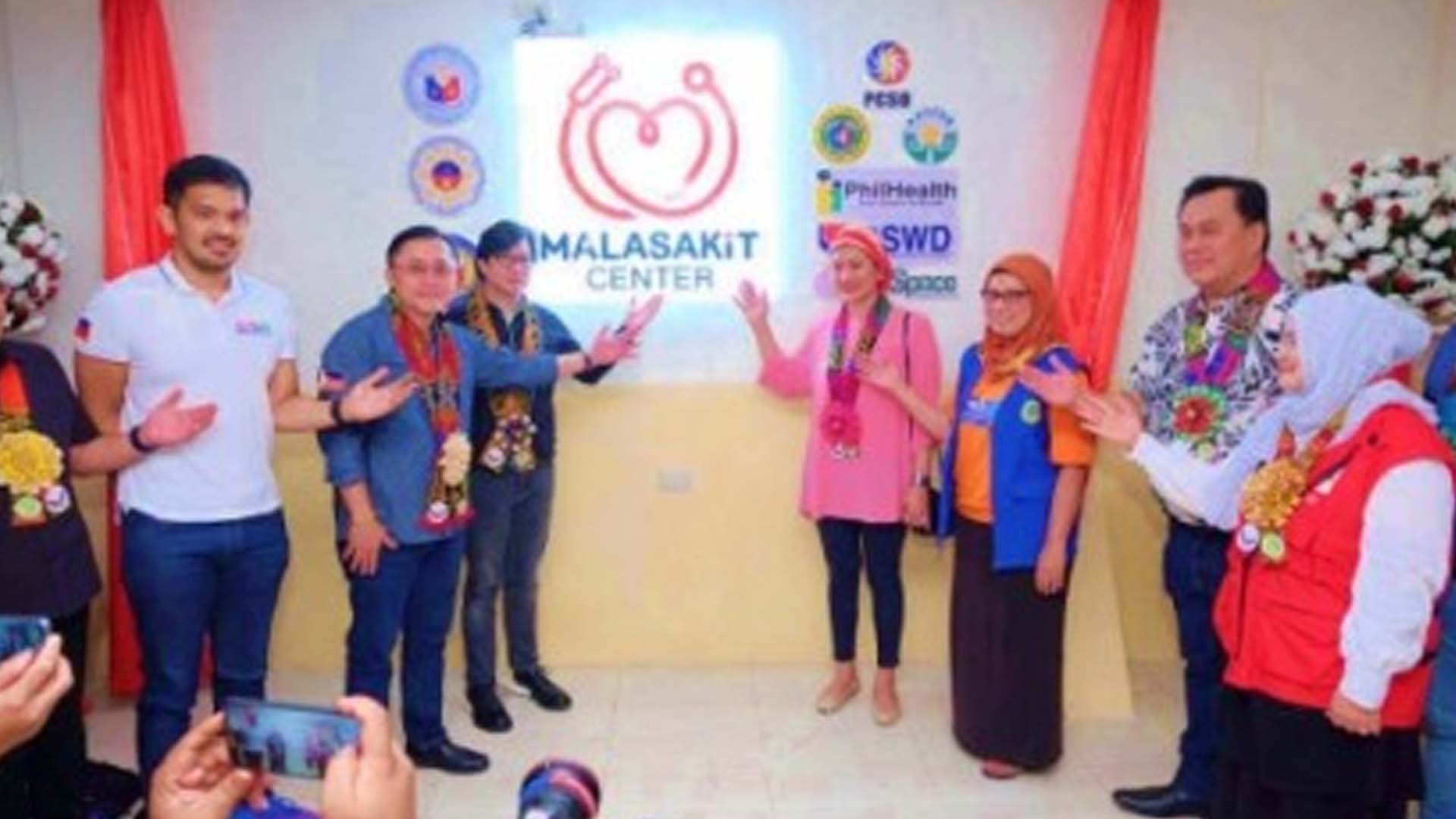Another “Malasakit Center” has been added to buttress the government’s health program for the needy.
Senator Christopher Lawrence “Bong” Go on Friday spearheaded the opening of the country’s 53rd “Malasakit Center” at the Maguindanao Provincial Hospital here, three days after President Rodrigo Duterte signed Republic Act (RA) 11463, or the Malasakit Center Act of 2019.
Initiated by Duterte and Go, when the latter was still Special Assistant to the President, the “Malasakit Center” is a one-stop-shop for medical financial assistance from various government agencies and offices.
Speaking before Maguindanao’s health providers and local officials, led by Maguindanao Governor Bai Mariam Sangki-Mangudadatu and her husband, Governor Suharto Teng Mangudadatu of nearby Sultan Kudarat province, Go said the “Malasakit Center” has four government agencies put together inside a government hospital.
These agencies are the Department of Health (DOH), Department of Social Welfare and Development (DSWD), Philippine Charity Sweepstakes Office (PCSO), and Philippine Health Insurance Corp. (PhilHealth).
“In the past, you need to pawn your carabao for you to have money to pay hospital bills. But with the Malasakit Center now in place, government agencies will surely help you quickly,” Go said, adding that the center targets free or “zero balance” for hospital services.
The Malasakit Center in Maguindanao is the second in the Bangsamoro Autonomous Region in Muslim Mindanao. The Cotabato Regional and Medical Center in Cotabato City, a component city of BARMM, opened the first center in November last year.
Go said more Malasakit Centers would be opened soon as part of the implementation of RA 11463.
“All DOH-run hospitals will have Malasakit Centers,” he told reporters here in an interview, noting that the law provides for the establishment of Malasakit Centers in at least 73 government hospitals in the country.
The senator added that the law allows local government units to establish Malasakit Centers, provided they meet the standards and criteria to ensure sustainability and consistency in the services provided by the centers.
“We have set criteria so the Malasakit center is complete and operational,” he said.
RA 11463 mandates the DOH, DSWD, PCSO, and PhilHealth to issue the implementing rules and regulations within 90 days after the President’s approval.
During an interview, Go was also asked about his plans as chair of the Senate Committee on Health regarding a report that more than 400,000 cases of dengue have been recorded in the Philippines since January.
“The anti-dengue program of DOH is in place. Let’s follow the four reminders from DOH on dengue prevention,” he said.
The DOH advises the public to apply the 4S strategy: search and destroy mosquito breeding grounds; seek early consultation when symptoms appear; practice self-protection measures, such as wearing protective clothing; and say “yes” to fogging in hotspot areas.
According to the DOH’s dengue surveillance report, a total of 402,694 cases of dengue were documented from January 1 to November 16 this year. The number has since plateaued.
In 2018, a total of 209,335 dengue cases were recorded during the same period.
To further improve the government vaccination program, Go also filed last July a bill that seeks to expand the coverage of the mandatory basic immunization program of the government.
If approved, the program under RA 10152, or the Mandatory Infants and Children Health Immunization Act of 2011, will soon include rotavirus, Japanese encephalitis, Pneumococcal Conjugate Vaccine (PCV), Human Papilloma Virus (HPV) and other types to be determined by the DOH Secretary.
At present, the program only covers tuberculosis; diphtheria, tetanus, and pertussis; poliomyelitis; measles; mumps, rubella or German measles; hepatitis-B; and H. Influenza type B. (PNA)







